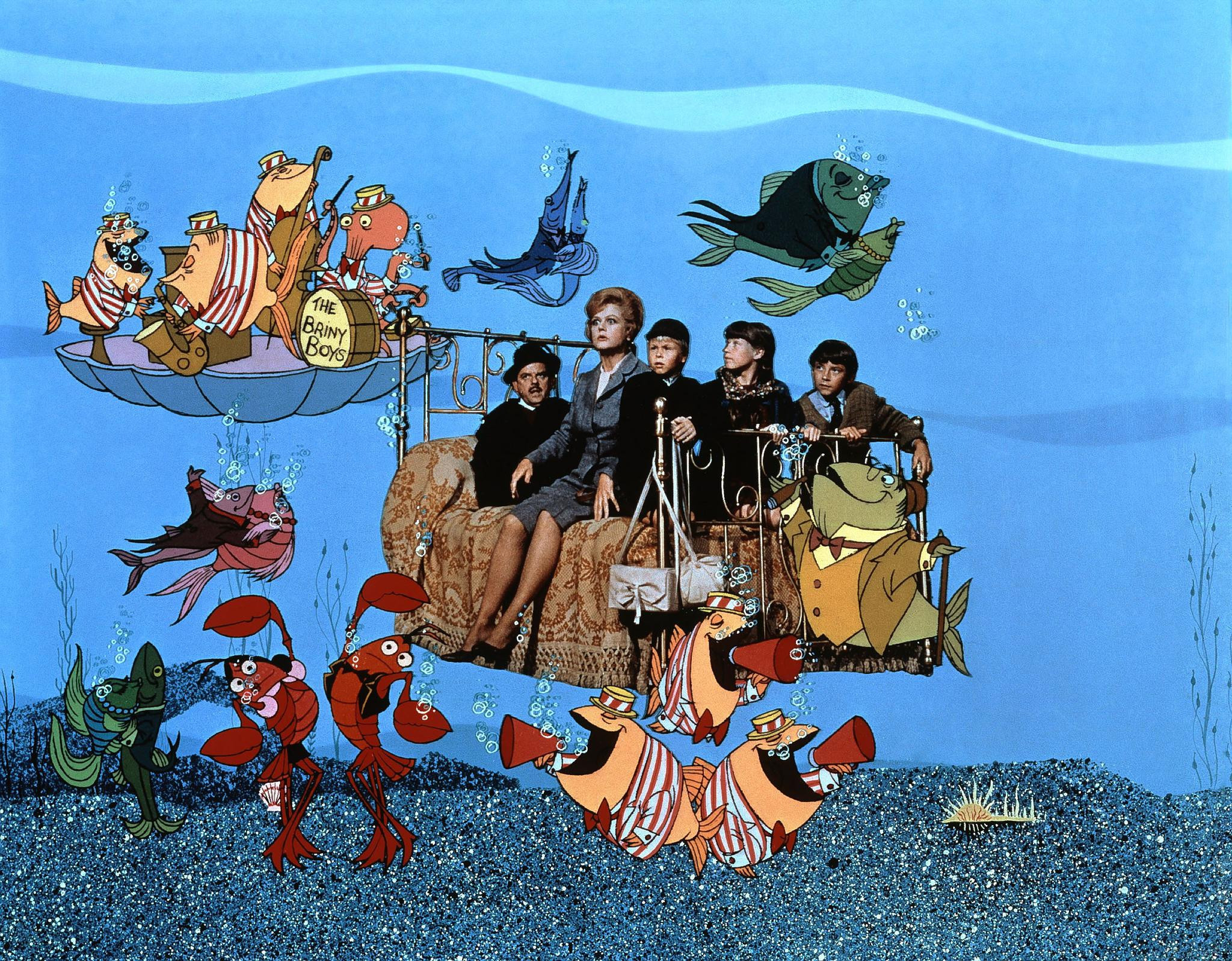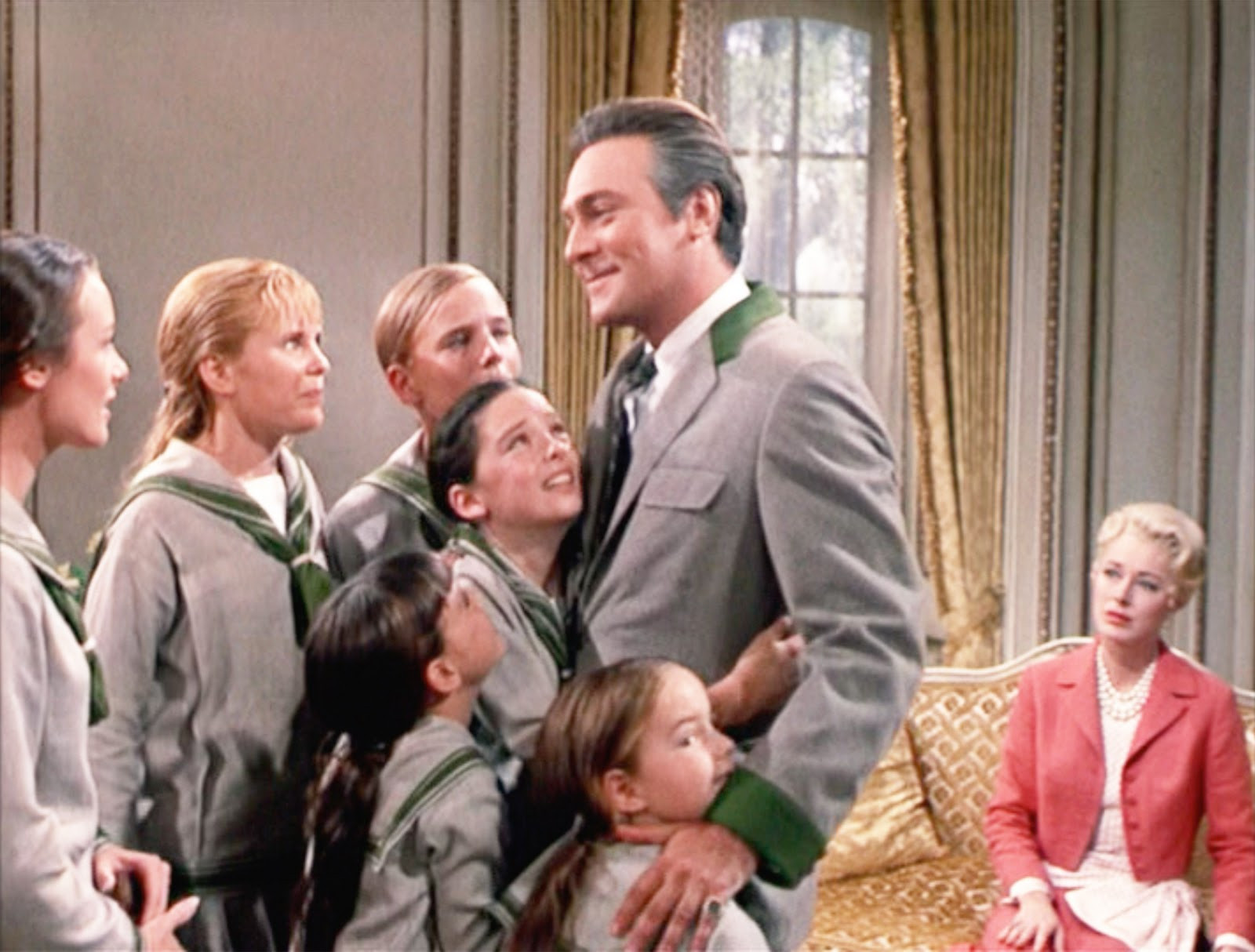The earworm is real. It’s been days, and the buoyant melody of “Tomorrow” from the musical Annie is relentlessly playing in my head. It’s a song that’s seemingly designed for perpetual optimism, yet scratching beneath the surface reveals a poignant undercurrent of sadness that’s hard to shake, especially when considering the Song Tomorrow From Annie within its full context.
Why Annie in the first place? Perhaps Netflix’s algorithm, mistaking my Steve Martin-fueled viewing of The Muppet Movie as a penchant for tales of resilient, underdog kids, suggested it. Or maybe it was the nostalgic pull of childhood, remembering babysitting sessions punctuated by my mom’s friend’s daughters’ Annie obsession. Annie reigned supreme, demanding VCR priority over even the exuberant Grease or the whimsical Bedknobs and Broomsticks.
 still-of-angela-lansbury-in-bedknobs-and-broomsticks-(1971)-large-picture
still-of-angela-lansbury-in-bedknobs-and-broomsticks-(1971)-large-picture
alt: Angela Lansbury as a benevolent witch in Bedknobs and Broomsticks, a fantasy film loved for its enchanting melodies and vibrant visuals.
Secretly, despite feigning indifference, I loved Annie back then. The melodies were infectious, the colors popped, and the energy of those streetwise orphans was captivating. The songs from other musicals didn’t quite hit the same way, but Annie’s score, and particularly “Tomorrow,” burrowed deep.
Perhaps I should have chosen differently that Friday night. HBO GO’s Boardwalk Empire Season 1, or the Criterion Collection’s Umberto D. were viable options. Jonathan Glazer’s unsettling Birth DVD has been gathering dust for ages. But Friday’s relaxed vibe led me to Annie, specifically John Huston’s 1982 rendition.
This Annie is a cinematic powerhouse. Its cast rivals those star-studded holiday-themed movies from the 2000s, think Valentine’s Day. Albert Finney’s Oliver Warbucks is imbued with his signature intensity; Tim Curry’s Rooster is delightfully slimy; and Carol Burnett’s Miss Hannigan is a gloriously scenery-chewing villain. At its heart is Aileen Quinn as Annie, a freckled, spirited orphan who avoids saccharine territory and delivers a genuinely compelling performance.
The film crackles with life, infusing its musical numbers with a raw energy absent in the more restrained Sound of Music.
 photo_sound-of-music07
photo_sound-of-music07
alt: A scene from The Sound of Music showcasing the wholesome family Von Trapp against the backdrop of pre-war Austria.
And “Tomorrow”? It’s a song I genuinely adore. Having it stuck in my head isn’t usually a problem. Unlike those who grow to loathe earworms, I find a strange comfort in these melodic visitors, like a quirky friend accompanying me through daily routines.
The Sadness Beneath the Optimism of “Tomorrow”
However, “Tomorrow” is different. Its persistent presence is unsettling because it’s arguably the most melancholic song from a film that, Old Yeller aside, might be the saddest musical ever made.
“But it’s about hope!” you might argue. “About resilience and optimism!” And you’d be right, superficially.
But it’s precisely that optimism that fuels the sadness.
Annie relentlessly pushes this hopeful narrative from the opening credits, urging us to “hold on ’til tomorrow.” It asks us to ignore the grim realities of the Depression-era setting: widespread unemployment, looming war, and the bleak prospects for a child raised in a neglectful orphanage. The film wants us to believe in Annie’s unwavering optimism, even when our adult sensibilities recognize the odds stacked against her. This manufactured hope, this insistence that things might work out, is what makes the film, and especially the song tomorrow from annie, so profoundly sad.
The film’s opening image is Annie gazing out of the orphanage window, conjuring fantasies of her imagined parents. She envisions them with mundane hobbies like needlepoint and ashtray collecting, even longing for parental strictness – a stark contrast to her chaotic reality.
This dream is her refuge from the misery embodied by Miss Hannigan. Burnett’s portrayal is a study in tragic loneliness and alcoholism, her empty liquor bottles repurposed as children’s toys. Miss Hannigan’s desperate yearning for affection, juxtaposed with her harsh treatment of the orphans, paints a picture of profound emotional deprivation.
alt: Miss Hannigan’s comical and awkward flirtation with a police officer, highlighting her desperate loneliness amidst the chaos of the orphanage.
This disturbing blend of sexual frustration and implied violence forms the backdrop against which Annie’s yearning for escape unfolds. Her adoption by Oliver Warbucks, initially a PR stunt, is a surreal twist of fate. Upon arriving at Warbucks’ mansion, Annie’s first instinct is to clean, revealing her ingrained expectation of servitude and her desperate need to escape the orphanage’s horrors.
Escape is the driving force. Beneath the cheerful choreography, Annie desperately seeks to flee her toxic environment. Her escape attempts, often perilous, are met with weary resignation by the other orphans. They highlight a world fraught with danger – pickpockets, teenage cruelty, and careless drivers. Yet, Annie persists, clinging to hope despite constant setbacks. This relentless pursuit of escape, fueled by unwavering optimism, is the core of the film’s melancholic heart.
The Unreachable “Tomorrow” and Annie’s Sisyphean Hope
Where is Annie running to? To the idealized parents of her imagination, of course.
The true sadness lies in Annie’s unwavering belief that her desires are attainable. Even when Warbucks initially intends to send her back, Annie’s cheerfulness remains undimmed. She sees the temporary adoption as a “swell idea” regardless of her own fate. Wealth and comfort are secondary; her goal is family reunification.
In a cynical 21st century, Annie’s relentless positivity feels almost jarring. The film’s success lies in making this unwavering optimism charming, not saccharine. It’s a testament to the film’s emotional depth, a quality often overlooked in musicals aimed at a younger audience. Perhaps an Oscar for “Best Emotional Manipulation in a Musical” is in order, though sadly nonexistent.
Ironically, Annie garnered a Razzie nomination for Worst Picture, among others. Aileen Quinn herself was even awarded “Worst Supporting Actress” by the fledgling Razzie committee. This dubious honor, shared with performances like Alicia Silverstone’s Batgirl and Madonna’s standard screen persona, adds another layer of melancholy to Annie’s story. Quvenzhané Wallis, the star of the 2014 Annie remake, faced similar negativity, highlighting a disturbing trend of public criticism aimed at young performers.
(The 2014 remake, starring Jamie Foxx and Cameron Diaz, only amplifies the original film’s sadness by its very existence – a pale imitation trading on the original’s emotional resonance.)
Annie is steeped in melancholy. Beneath the upbeat tunes, songs like “Hard Knock Life” and “Little Girls” hint at deeper discomfort. But “Tomorrow,” the signature song tomorrow from annie, carries a unique existential weight. YouTube is filled with minor key renditions, performed by young women who intuitively grasp the song’s underlying sadness, transforming it into a lament of what’s missing.
These interpretations, while beautiful, often miss the most heartbreaking element: Annie’s unwavering optimism.
This counterintuitive depression is captured by an old riddle: “What is always on its way, but never gets here?”
The answer, of course, is tomorrow.
Annie’s tragedy is her pursuit of an unattainable tomorrow. Her parents are gone, her idealized home destroyed. Psychologically, she craves unconditional love, parental approval. Socioculturally, she yearns for a stable, nurturing environment. Temporally, she desires an escape to a better future. But this tomorrow remains perpetually out of reach. She is a pint-sized Sisyphus, forever pushing the boulder of hope uphill, only to have it roll back down each day.
The more Annie hopes, the more her anticipation builds, the more crushing the inevitable disappointment becomes. Each morning, she awakens to the same reality – the orphanage’s grim ceiling or the gilded cage of Warbucks’ mansion. It is always today, never tomorrow.
Yet, her optimism endures. It’s this unwavering positivity that charms adults, from Mr. Bundles to Grace Farrell. Even Eleanor Roosevelt and the curmudgeonly Oliver Warbucks are swayed by her infectious hope, joining in a rendition of “Tomorrow.”
http://www.youtube.com/watch?v=Yop62wQH498
The ultimate heartbreak, the core sadness of the songs and especially the song tomorrow from annie, lies in its ultimate futility. Yes, Annie is adopted by Warbucks, but this isn’t the “tomorrow” she truly desires. Warbucks, emotionally distant and driven by wealth, can never provide the unconditional love she craves. His adoption is framed as a business deal, devoid of genuine paternal affection.
Annie, sensing this emotional disconnect, initially rejects Warbucks. Her hope for her “real” parents blinds her to the genuine, albeit flawed, affection offered by Warbucks. She is, in a sense, damaged by hope itself.
The film’s climax descends into near-Lynchian darkness. A bridge-top confrontation, reminiscent of Pennywise from It, creates genuine suspense and fear, a stark contrast to the musical’s lighthearted facade.
 Would you point me in the direction of the G rated musical?
Would you point me in the direction of the G rated musical?
alt: Pennywise the clown lurking in a basement, juxtaposed with the G-rated musical genre, highlighting the unexpected dark undertones of Annie’s climax.
The finale of Annie is not a typical children’s movie conclusion. It’s a descent into Cronenberg-esque body horror, a secret dread that lingers beneath the surface of the upbeat musical numbers.
Annie is rescued, deus ex machina style, by Punjab dangling from a helicopter. The Busby Berkeley-esque finale, with its jugglers, fireworks, and elephant, ironically underscores Annie’s doomed fate.
The Party’s Over: Annie’s Perpetual “Today”
“Doomed?” you might ask. “How can a happy ending signify doom?”
Consider Warbucks. His grand gesture of adoption is, at its core, a performance. A captain of industry, accustomed to grand openings and public image, Warbucks’ paternal affection feels performative. The celebratory party, the soft-shoe dance – are these genuine expressions of love, or merely well-staged PR? Even the handshake during their dance underscores the transactional nature of their relationship.
Warbucks’ relationship with Grace Farrell further highlights his emotional limitations. Despite their obvious affection, their dynamic remains professionally constrained. Grace’s re-bunned hair in the finale symbolizes a return to emotional repression, negating Annie’s earlier influence.
After the credits roll, Warbucks, the Depression-era Richard Branson, will return to his relentless pursuit of wealth. What becomes of his relationship with Grace?
“They’ll marry!” you exclaim hopefully.
Perhaps. But a marriage built on a constant employer-employee dynamic? Unlikely to thrive. Warbucks, if he were to marry Grace, would likely fire her, unable to reconcile their personal and professional lives. In the 1930s, pre-feminist era, Grace’s hard-won position as Warbucks’ indispensable secretary is unlikely to be sacrificed for domesticity. Her competence, her sharp intellect, her integral role in Warbucks’ empire – these are unlikely to be exchanged for the role of Annie’s full-time caregiver. Has anyone considered what Grace herself truly desires?
More realistically, their relationship will remain professionally distant, eventually dissolving when Warbucks, misunderstanding Grace’s professional dedication as coldness, fires her, perhaps fueled by jealousy upon discovering she’s dating a patent attorney. Annie, consequently, will be raised by a revolving door of servants, none capable of replacing Grace’s genuine care and friendship.
Grace, after all, is more than a surrogate mother; she is Annie’s only true friend.
Once Annie leaves the orphanage, the annual orphan visit becomes a token gesture, a distant memory. Annie, the animated, irrepressible orphan, remains an outsider in her new, privileged world. Her spirited nature, her “get-up-and-go,” will be slowly eroded by the isolating world of boarding schools and wealthy peers.
Warbucks, inevitably, will marry and divorce, perpetuating a cycle of emotional turmoil, with Annie caught in the crossfire. Annie, the orphan without a last name, forever defined by her lack of belonging.
The most damning evidence of Annie’s doomed future is her lack of growth, her unchanging hope. She never learns the truth about her deceased parents. She never acknowledges Warbucks’ affection as genuine love. She remains fixated on a future reunion with her imagined parents, a tomorrow that will never arrive. The joyful finale, like the orphanage’s forced cheerfulness, is a facade, masking a deeper, unresolved longing. Annie’s perpetual optimism is not a sign of contentment, but a symptom of her enduring loneliness and abandonment. She will forever chase a tomorrow of safety and happiness, a tomorrow that remains perpetually a day away.
But hey, no big deal, right? You’re only a day away. You’re always a day away.

